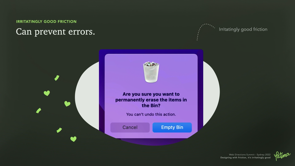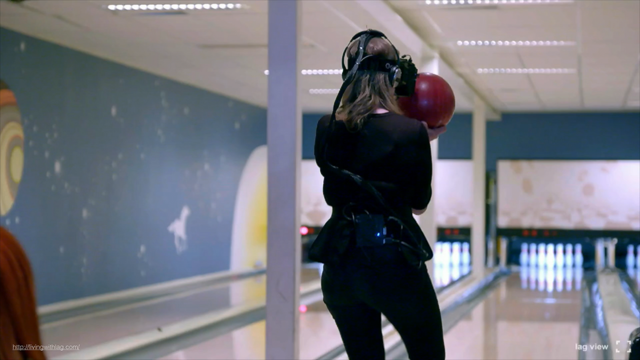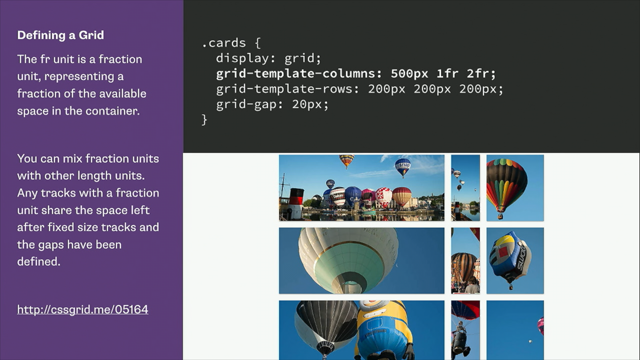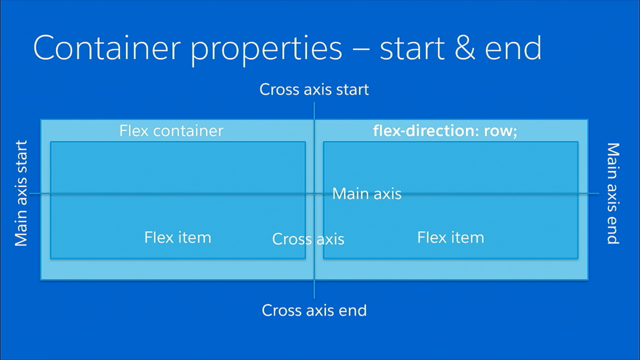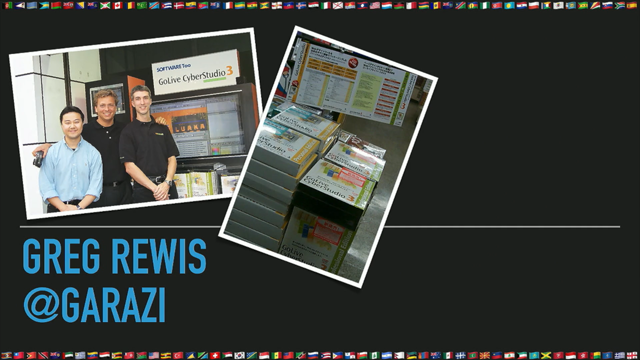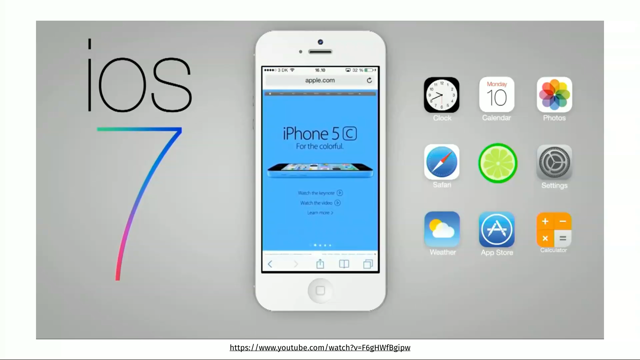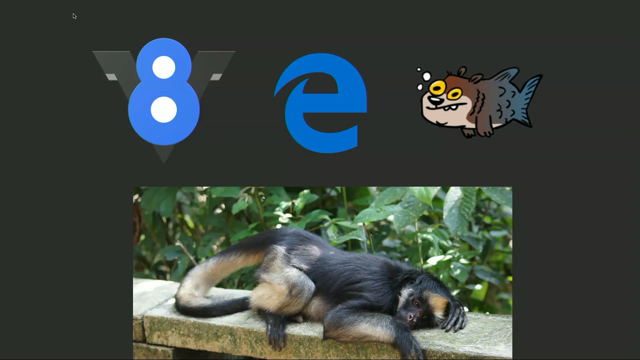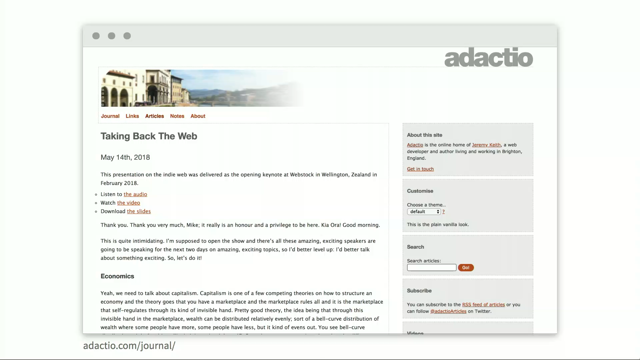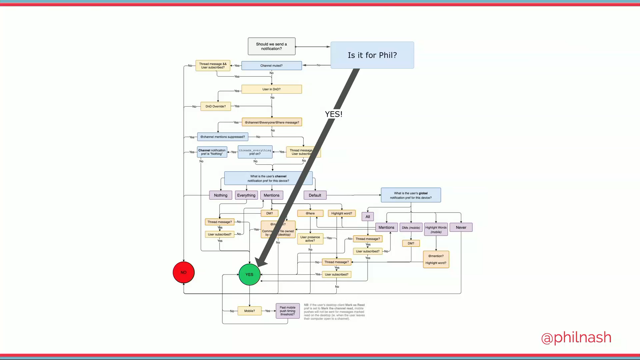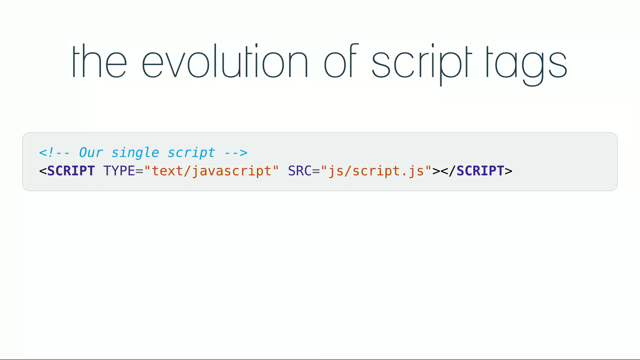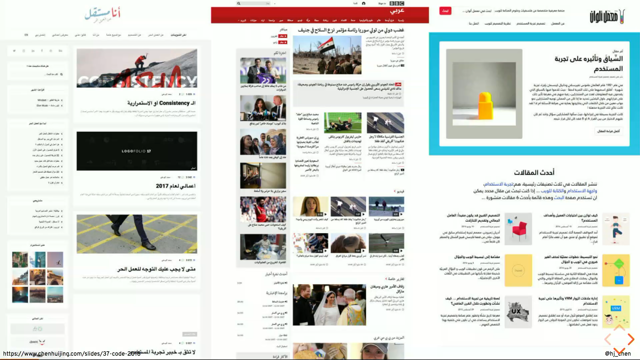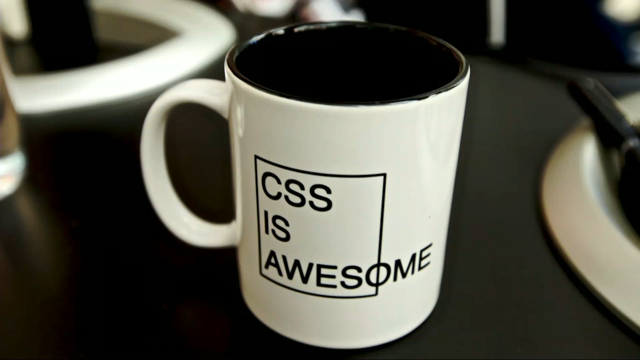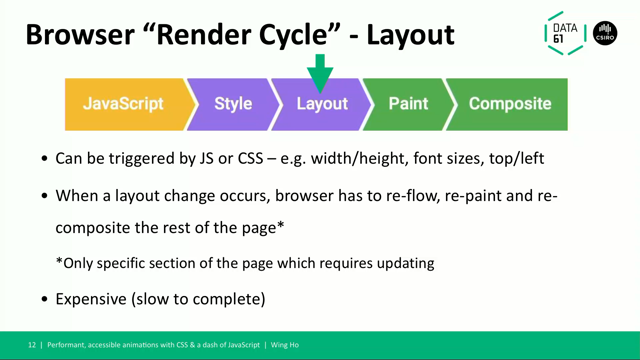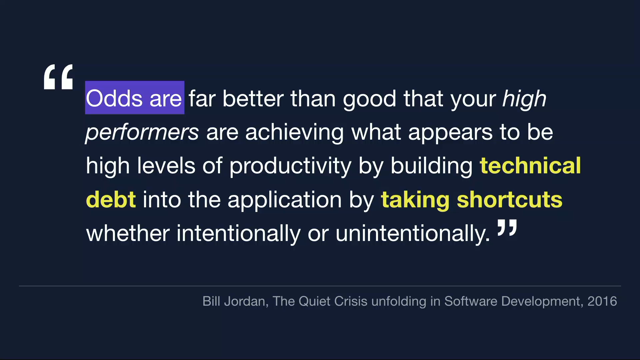
(upbeat music) - [Patima] All right, good morning Melbourne. How is everyone today? (audience mumbles) One more time, one more time with spirit? How is everyone going today? (audience cheers and Patima cheers) I'm lovin it, and I'm lovin Melbourne.
I always really enjoy coming here.
Beautiful city so thanks for having me.
Now, today, as John mentioned, I'm here to chat to you all about the art of giving a damn, and, shrug emoji, also not.
And it is a, pretty much a bit of a, you know, bit of a self-inspection and also a talk that's about bit of an inspect of our industry and the state that we're in at the moment.
So, before I get underway, I'm going to talk about myself for a bit.
A bit about me, actually, no that's, that can be a bit boring. Let's, let's go into an emoji story about me. I'm Patima, sometimes I'm called Padima, well, sometimes I'm called Pats.
I design a little, I code a little, I manage people, I manage people who manage people. I've been involved in a digital agency for the better part of my career, the bigger part of my career. And this year I've gone into new challenges in a new environment, I'm very, very uncomfortable, but I feel like, I'm growing a little, you know? Discomfort is a good thing.
I've launched and shipped a few things in my time. And, my loves, I have a lot of loves in my life, and one of those is the beach, the outdoors, I love netball, I love food, particularly tacos, big fan. I love my gin, I love travel, music, play a bit of guitar. And I love dogs, I'm that person that you have to kind of keep your dogs you know, hidden away from me, otherwise I'll just go chasing them.
So I thought in the spirit of this, I wanted to share with you, the best video I've come across on the Internet, of all time, I don't exaggerate at all.
This is the cutest doggo that's stolen a GoPro, and it is just livin it's life, and it's just goin for it. Just goin for it.
This is my new spirit animal.
Should we just, yeah, we'll just put this on repeat and I'll just let y'all chill. (laughs) Anyway, so cute, but enough about me.
How about you, what brings you all here today, to code? And I've had a, you know, I've had a few chats over, you know, these last 24 hours, which has been rad by the way.
But what's been really interesting is everyone's different answers.
So, let's crowdsource an answer.
What brings you here to code? - [Audience Member] I'm a backend developer want to do more front end stuff.
- [Patima] Did everyone hear that, backend developer wants to do more front end. So are you here to learn? Great, cool, you're the only one I'll pick on for now, thank you for that.
(audience laughs and Patima laughs) But okay, so, some people are here to learn something. Some people are here to meet people.
Be in a like-minded community.
You have the conversations, same, similar kind of challenges.
Or maybe you just wanted a day out of the office. So, whatever, you know it's all good, it's all good, we're, we're YOLOing it here. But what I love, really, really, really, really love about this, is we have an opportunity to meet others and connect, and to have people that relate to us, on a, in a plane that is really unique in our industry, that we, we face obviously, some challenges. And we're, it is really unique to our industry because we're always connected.
And we've always got something to learn, something to level up to.
Now, interestingly, when you Google level up as a, auto complete came up with two very interesting responses for me, thank you Google. (laughs) What's up there on screen is level up as person or level up as a developer, and all maybe.
So then this leads me to the next question that I have for you.
What kind of developer do you want to be? Have a little think about it.
I'm not going to pick on anyone, put anyone on the spot again, just yet.
But interestingly, I get a lot of replies to this question as, you know, backend developer, front end developer, React, Angular, success, you know, and I get really technical responses a lot of the time. But what I, I suppose I'm really interested in is, what are the kinds of qualities and traits do you want to have as a developer? What do you aspire to, to grow in.
I thought that this Tweet from Eric Elliott was a really interesting one that sparked a bit of interest from my mind.
And it reads, think of the most extraordinary developer you've ever worked with, and what are the three qualities that impressed you the most about them.
Well, his survey was a good one.
He did a cool blog post about it that unpacks this. Oh, who's read this by the way? Who's ever...
Ooh, we have one, we have one, okay cool.
Alright, well the results of his, his survey, no surprises here, or too many anyway.
Top five traits of extraordinary developers, problem solver, skilled, mentor slash teacher, excellent learner, passionate.
Yeah, cool.
And then top five qualities, so he extracted this out as well.
They're communicative, efficient, collaborative, committed, honest, pretty good qualities.
So combine that with the top five traits again. That's looking pretty good.
I'm going to give it a Han Solo, not bad.
Yeah (laughs), but my question then, leading on from that, is, can we do better? Maybe, hear me out.
I believe, and this is just my perspective, so come with me on this journey.
I believe that better devs are slow.
I believe that better devs don't work long hours. I believe that better devs avoid hard work. I believe that better devs write bad code.
And lastly, I believe that better devs enjoy friction. Alright, I'll let that sit with you for a little bit. Don't throw me off the stage just yet. (laughs) Let me unpack these for you.
Better devs are slow.
I mean, some might agree with me, and some might be thinking, mmmm, mmmm.
FYI, there's goin, it's, it's going to be a lot of meme city in this, in this prezo, so just strap yourselves in for it.
Alright, let's have a (mumbles).
Have you heard a lot of the praise, around, similar to, you know, they're such a gun dev, they smashed out the tasks, they're super fast. Do you, do you hear these praise, you know, in your workplaces, and in the, yeah, a few nods around. Cultures that we swirl around.
This is what I think when I hear those kind of sayings, and those phrases and those praises.
I am a little sceptical about it, because what was the trade off for fast.
I mean, did they have enough time for problem solving? Did they have enough time to, you know, liaise and confer with their team? Did they really, you know, get that chance to understand the problem space, understand the people that are using the product, understand or question the things along the way? And what happens when, in a year's time, another developer hops in their codebase? Did they feature-proof it for maintainability and scalability? I came across this quote by Bill Jordan, which I thought was pretty bang on.
Odds are far better than good that your high performers are achieving what appears to be high levels of productivity by building in technical debt into the applications by taking shortcuts, whether intentionally or unintentionally.
Fast isn't necessarily better, but interestingly a lot of our languaging suggests that the praise, the praise that we give out is about people just smashing it out and going for it. Ah I don't really agree with it, so, yeah, you get the point.
(audience laughter) Better devs, again I'll preface it with, I believe that better devs don't work long hours. This one's pretty self explanatory.
But when you go into a new workplace, and you get a lot of this, I worked eight hours, and I worked 10 or 12 or, you know, 24.
Yo, I'm just, I don't stop workin.
Interesting, but, is this the kind of thing that we want to endorse and promote, especially with the juniors coming through, new people coming through into the industry. I mean, we're always connected anyway, so, there's, you know, there's something to be said here. It's...
To me I think there's this potential for just a misunderstanding of what that work ethic might look like.
Just because people are present, physically present, there, or connected and online, doesn't mean that they're high, highly productive. Doesn't mean that, you know, they're positive contributors to the team.
It just means that they're present.
And there's a term for this called presenteeism, funnily enough.
And presenteeism is the practise of being present at one's place of work for more hours than is required, especially as a manifestation of insecurity about one's job. (Sigh) I'm not so keen on that.
I think there's surely better things to do with our time, and surely better things that we can do to encourage other people to spend with their time. So what will happen if you work leave on, oh (sigh), words. What will happen if you leave work on time? Here we go, you'll leave work on time.
I know, epiphanies left, right, and centre. (laughs) There will be improvement in time management and communication, not just from yourself, to say, I'm leaving at say five or six or whatever that contact hour is.
I have to manage my time in such a way to get the things that I need to get done done and, you know, the prioritisation and what's the most value that I can offer in this day. But you also have to communicate to the people you report to, to your teammates, to the people that report to you, and vice versa. So that's not such a bad thing.
That's, that's pretty good communication.
You get time for things that are important to you. I think that's a positive.
And you get to do time, or get time to do other things that you enjoy as well.
Yeah, okay, great, so are you thinking, yeah, that all sounds well and good? Patima you're telling me to leave at five o'clock when I'm supposed to, but how? You know, how do we, how do we do that if we're not quite in the habit of it yet? And I say to that, some baby steps.
So just taking, you know, taking a day as an example and saying, maybe on Tuesdays I have a commitment to a fitness class or rock climbing, or anything that would interest you.
Maybe booking some appointments after work, whether that's, you know, catching up with family or friends. And, actually making that commitment so that you take that step because you have to leave at that particular time.
It seems, it seems pretty simple but what I'm suggesting is that we commit to leaving on time, by making that commitment with ourselves.
And then also for those who aren't working in an office, and working remotely, I would suggest the same. Design in that discipline for yourself, and commit to it. But just give it a go, one day at at time.
So, number three, I believe that better devs avoid hard work, yay. (laughs) I'm also saying I think that better devs are lazy and I'm sure this is something that a few of you might have heard of before. But, there's some great quotes that are swirling around with it.
Lazy, because only a lazy programmer will avoid writing monotonous, repetitive code, thus avoiding redundancy, the enemy of software maintenance and flexible refactoring.
Philipp Lenssen wrote about this back in 2005. It's a, it's a good piece, by the way.
But, he pretty much goes on to say that if it looks like it's going to be a repetitive task, a lazy dev is going to find a way to automate it. The tools that come out of this kind of process will speed up the future of production.
Rad.
Do you ever do this, I do this, you load up on your shopping, so you just go in one, you know, one lot. It's not quite like this but I thought that that was a, that was a, something we could all relate to. (laughs) Alright, so this one I, I had, you know, I've had a few people pull some faces when I said it, better devs write bad code.
Who agrees with this? Alright, I've got a few bites, excellent.
Why, you know, why am I saying this.
It's because, the people who admit to writing, writing bad code, or being wrong, and actually, you know, vulnerable and open in that way. Well, I tell you what, that means that they're open to learning and improvement. That means they're open to a conversation.
And their ego can be left at the door.
And these are the devs that are open to growing. Bad code means that they're open for a discussion. And that they're encouraging a safe culture for that kind of discussion to be had.
I think that's a good thing, so, as I mentioned, I feel like egos left at the door here.
They're the teachers, they're the mentors, and the students all at the same time.
And these are the kinds of devs that I want to be working with.
So anyone who didn't put their hand up before, what do you reckon, you agree now? Yeah, come on let's hear it, woo! (laughs) All right, last one.
I believe that better devs enjoy friction.
I promised myself that I was going to find a better meme for this, but, that will have to do for now. (laughs) Now, positive friction in my opinion can lead to better outcomes.
It's not about being a stick in the mud, it's not about being a pain in the butt, you know, in a meeting, and just being seriously annoying all the time.
It's about having conversations that are richer, that are more meaningful, that are actually discussions that can dive deeper into the whys behind things. To have that chance to explore empathy, to have that chance to have your ideas, bias, and assumptions challenged.
So that friction, by having multiple people come to the table, and having their different backgrounds and different insights that they can bring to the table, and seeing something from someone else's perspective, I think that's a really excellent thing.
So, not playing along to get along, for the opportunity of doing better.
It's also a great way to understand, because everyone will have unique perspectives that they'll bring.
And that's something that, when you really, really take a deep dive into the way people, people think about a problem, or think about something, the, the best way is just to ask questions about it. You know, why do you think this way? What, you know, what's your, your background that you bring? And what are the insights that, you know, we can learn from each other? And it's just as important to create a safe environment for this healthy discussion to take place.
Because it can get heated, it can get uncomfortable, but the underlying important thing that we should definitely bring to the table is ensuring that we respect each other, that we respect each others' opinions, and that we respect the diversity of thought in there. There's an opportunity then, here, to advocate for, on behalf of those that your product will impact.
Because, people use products, after all.
So, it's our responsibility to ask the questions, all, you know, all the questions. Because we're the ones at the table and can actually have that conversation on behalf of them. Can this cause harm, this feature that we're building? Or this thing that we're, you know, we're swirling around with an idea.
Can everyone access it? Simple questions but when you really just dive into it, something might present itself that you might not have thought of before.
And, this is when we have that chance to just ensure that we are looking at the right things of, you know, basic human rights.
And it's a really interesting one because I, I know that there's been a few conversations that have swirled around about this previously. And I'm really glad that we're having these chats now, because something that's really important to me, and my values set, really aligns with us being able to ensure that people have the right to access, and that people have the right to truth, the right to privacy, the right not to be injured, the right to what's agreed.
They're the things that are valuable to me. I would want these rights, so I would want to advocate on behalf of others to also have these rights. How can we impact this in a development world? Ah, so many ways, so many ways.
Well, let's just, you know, throw in this, you know, let's go looking at security, security of data. Privacy, accessibility, the language that we use, ensuring that things are understandable so that people can actually navigate as well to the information that they need to find out about what's happening with their data.
Or knowing when to be able to opt out, or not having dark patterns to, in place to trick the user in the first place. It's just like these kind of little mini discussions that I feel can be had prior to things getting decided on.
So situations like this could possibly be avoided. I mean this is, this is a small thing, in terms of, I mean I would call it a dark pattern personally, but I think it's you know our, our responsibility to ask the question of, is this really what we would want to happen to us, to feel I don't know, to feel almost tricked and deceived along that process? I mean, I don't want that to happen to me.
What about products that come out and, you know, technologies that come out and that might have been all well and good to develop, but I wonder if anyone asked the question about misuse and harm.
And we're seeing it as it develops along in our world day to day and where...
Ah, has everyone seen Black Mirror? I feel like, you know, we, we, that it's, it's so uncomfortable to watch Black Mirror because it could actually come to fruition unless we ask the questions, unless we take a pause, and take a moment to have a little think about it. (sigh) So, why aren't we doing these kinds of things already? Or, maybe we're, we've already started.
Maybe we're already underway.
But, I actually think we are, we are, we are considering it. We are, we are actually in this, in this great time, this great opportunity where we can, you know, enact the change and make a difference. And I suppose it comes down to an example like this. Wh...
It takes more effort, you know, it takes more energy to care.
It takes a lot more from us to invest in out of our comfort zones.
It's, sometimes it's much easier to just get that pepperoni pizza.
Because, it's fast, you know what to expect, it's right there.
But maybe, maybe we should be eating healthier. This, like a double, like a double-edged little message here to no one.
Yeah, there we go. (laughs) Alright, how's everyone doing? Great, can I get a woo hoo, I need a woo hoo. Woo! (audience cheers) Woo! Thank you people, alright.
As I go into my next segment, of, of this talk, I'm about to explore the current state of our industry. Leading on from that question before of so why, you know, why isn't this just common place and, you know, why aren't we, I suppose, in these behaviours already or these ways of thinking collectively.
I think the state of the industry has something to answer for that.
Alright, come with me on this journey.
Now, would you all agree that our industry is in a constant state of learning? Let's embark on that, that hmm from yesterday afternoon. If you agree with this, if you've learnt something in the last 24 hours, give me a hmm.
(audience hmm) Hmm. (laughs) It's gonna be so funny. (laughs) Okay.
Would you agree that our industry's in a state of continuous change? Hmm.
Okay give me a hmm (laughs).
This is so good, give me a hmm if you're using the exact same workflow, or working on the exact same stack as you did two years ago. Uh? One year ago? One month ago.
Hmm (laughs) hmm.
Alright, that the state of our industry is constant connectivity.
Who hops on their laptops or machines after work or on weekends? Hmm. (laughs) What about community, who runs, volunteers, or goes to Meetups regularly? Hmm.
Active in online communities? Hmm hmm. (laughs) Who's contribute to, contributed to open source projects this week? Hmm, last two weeks? Month? Hmm (laughs) hmm.
Why are the hmms getting so flat. (laughs) I also believe that the state of our industry, it's, you know it's all Cs there, creativity. How many of you are working on a side project at the moment? Hmm. (laughs) Or have recently? Yeah, yup, alright.
So, that's kind of...
I think that the, that the state of our industry as it sits, and, it's unique to our industry.
And I am really proud of our industry but I do, I do have some questions here, with the amount of work that we're taking on. And what kind of balance does that actually offer in our, in our day to day lives? Are we working hard because this is what's expected of us? Is this what we're deeming as work ethic but confusing it with professional development? Hmm. (laughs) And that brings me to the question of what do we actually value as good work ethic. Now, I'm no stranger to good work ethic.
I, you know I was, my family's always been super hardworking and they really, really value work. And I wish I had a slide up with a photo of my granddad, 'cause he's the cutest.
But he grew up on a farm, so his idea of work ethic is, you battle it out, bit of hard yakka, and then your day ends, you feel good, crack open a beer at the end of the day, work's done, start over again the next day. But when you're doing it, you are, you're a hundred percent, there's none of this dilly dallying around. But it's quite hard for us in our industry to do that. I mean it's, it's not quite the same strenuous work but there's, there, there is a lot of mental strenuous work. So here's, here's our question here, what, what do we really value, collectively and individually.
I spoke about this before, they're such a gun dev, they're super fast, I worked eight hours today, I worked 10, 24. What about now going into that state of our industry. I've published a gazillion posts.
I'm working on a bunch of side projects.
I went to four Meetups this week.
Look at my, all that green on that wall.
I'm mentoring five people.
And then these kind of things that we hear. I'll sleep when I'm dead.
I'm sooo busy, how are you, I'm sooo busy, I'm so busy, yeah.
Work can't survive without me, I need to be there, I need to be constantly connected, what if they have a question that they can't answer.
Ooooh. (laughs) And I've got no time for breaks.
How often do we work through lunch breaks? How often do we go, oh, rather than get up and have that chance to have a drink of water, you just, you're just in a zone and, you just, you just have to do it.
But really the only people (sigh) that are doing this to ourselves is ourselves. (sigh) What that sounds like to me is that if I'm always busy and needed then I am valuable.
(sigh) Add this to the world of all the things we have to learn and this has changed since the last time I grabbed a snapshot of this.
And there are all of these things, I think, underlying, the underlying problem is that all of these things are expected in order to get ahead in our industry.
This is the hustle.
(sigh) It's a little unrealistic I think.
Where's this leading to? Are we stressed? Are we anxious about things, are we approaching burnout? Because all of these things that we've smooshed into our worlds, smoosh is a definite word. We're just, we're just being a little harsh on ourselves, don't you think? Yeah, have you all watched IT Crowd? Yeah, you know that bit where the dude has the balloon he's like are you stressed Jen? Are you stressed? It sounds like I watch a lot of TV, I don't. (laughs) But something that's really interesting is Denise Jacobs' talk that she had, and she, she's written a lot about this about banishing your inner critic.
She actually spoke at one of the first Web Directions I got the chance to attend.
And it was, it was a game changer for me.
And she spoke a lot about the, I should do this, and I could do this, and there's a lot of, you know, comparison that we make to those that we look up to in the industry, and those that are around us.
She, she goes to right, as an example, whether I should blog more or I should have written four books by now, or I should do conference talks, etc. If I woulda, shoulda, coulda is a predominant part of your inner dialogue, then you have an inner, you have an active inner critic working tirelessly to make you drink the not good enough Kool-Aid. (sigh) That a-ha moment.
You know, is it, that something that is leading to that imposter syndrome feel, that I'm, you know, just what am I here for, you know, am I a big fraud, am I gonna suck, am I sucking right now doing this conference talk? And it's like this whole world of perfectionism where you're comparing your inner self to someone else's projection of their outer self. And, we're just, it's just so, it's too much. I think it's too much.
But, you know, how do we fix this? You say to me, but Patima, I just don't have time to do it all.
How am I supposed to develop my career and pay the bills, and, you know, you're telling me I need to be involved in these conversations that are going to change the world and consider other people as well.
To which I respond, it's time to make time. It's possible, come with me on this journey. So let's break it down, we're talking about time right, so literal time.
In a 24 hour day, I don't know if you have 24 five hour days over here on the East side, but, we certainly work to 24 in Perth.
Let's say that we've got that constraint, of 24 hours as a whole, we break it out, it's your day job and your mealtimes, you pretty much half your time's already spoken for. You've got sleep, say you're getting you know, around seven hours sleep, that's about 29% of your time. So really you've got this kind of chunk here, which is that, you know, that 3/4, or that, sorry, that, that quarter slice pie.
That is kind of that leftover time of what, what you know, the questions that I'm asking are really around what are we doing with this time because, that, that time is a little hard to move and that time's a little hard to move, or we shouldn't be moving that because, well, there is such a thing as sleep debt.
You all heard that? Yeah, sleep debt, pay that back, can't pay that back with naps.
Read up on it (laughs), literally can't.
But that's, you know, that time there, is, that one hour? At 4%, in a twenty four hour day, is all we're leaving for all of our hobbies and our interests and the things that bring us joy and spending time with friends and family.
I mean, that's, that, that could be a typical day. I mean we can start to shift things around a little, but really we don't have a lot of room to move in a twenty four hour day, right? So how do we maximise this? What about, if we reduce this extra PD bit, and smoosh it a bit more into our day job.
Because this professional development is actually us professionally developing for our day job. Then that kind of gives a bit more time to life. While we're mapping, that's a few more hours, right? Better yet, what about...
I'm solving all of the world's problems in one day aren't I? What about if we took out the travel bit and maybe like, you know, for one or two days a week, maybe we, we take out that couple of hours that's in the car or in the commute, on the train, etc. And then we've, you know, got our 4% for extra PD, in case you do want to work on those side projects, etc. that aren't necessarily a direct relation to your day job. And look at that.
Life! Yeah, what do you think? Can I get a hmm? (laughs) We can do this, we can do this.
This, this pie chart, as rough as it is, you know could look very differently for each and every one of you in your day to days. But how's about getting this a bit more open so that it's about the same as work and life. Work, life, balance. (laughs) Yeah, possible.
So I propose this.
How about we make time for the things that bring you joy. (mumbles and laughs) Family and friends, interests and hobbies, travel and exploration, living life.
Yeah, and learning, at conferences, and you know doing cool things, but all of these things as well to balance off our you know what we're doing in our professional lives. And here's also another scientific graph that I bring you. Fulfilling things are filling.
I have no science to back this up, but (laughs) I truly believe that when you're doing things that you love, you'll, that you love, that make you, that bring you that joy, that bring you that, that sense of yeah, it's energising, and then you have the energy to give back into other areas of your life. This is just a thought, you could say to me, well, Pats, I love coding, sorry, already doing what I love. And, that's great, that's fantastic, if that's the love of you fantastic, or love of yours, fantastic, but is that, is that title the whole thing that defines you? I mean, I love cheese, but...
(audience laughter) You know, like, it's, it's not, it's not the sole thing, for me.
There's a lot of things that bring me a lot of happiness, a lot of things that bring me, strength and energy, and, you know, I do, I do ask you to have a think about what those things might be for yourselves. And, as we're going into this world of mentorship, and coaching, leadership, management as our careers develop and grow, and that, that people become, or come into your care, these things matter even more.
That you have this shit sorted for yourself. It reminds me of that, that aeroplane, you know like that masking thing when they drop and that they've done their, you know the exits, and follow the aisle thing.
Did I do that, like, that one? To help yourselves, before you help others, because, the air hostess said so.
No I'm just kidding, but you know, you know what I mean right? You just have to have, be put, you know have that mindset of putting yourself first so that you have more to give.
We're gonna go through a quadrant at the moment, I'll give you a little how to, that may work, that may not work for you.
Whatever that might be, but I urge you to give this a go. Even in your spare time if you want to grab the pieces of paper at any given point.
But just, this is my activity for you to go and find your own you-ness.
Write down some things that bring you joy.
Write down the things you might value.
Write down some things that you stand for.
And write down some things that you're grateful for. When you have these kind of, kinds of lists and you take the time to, I suppose, write them out and make that commitment, it's really interesting because what that starts to develop in you is the wow, wow these are things that can guide the conversations that I'm, that I'm having in my workplace, that chance for me to advocate for things because of the values that I have, and I know what I stand for, and I stand for ethical design, as one. And, for that, you also have this opportunity to know where your career direction is going. Is this the right workplace for me, do their values align with mine.
And things that I'm grateful for, are the things that, you know, when we write them down, we realise, hey, we could be spending much more time with, with these things, and filling those up.
And making the choice to do it, is the, you know, the choice is yours.
So, not only does your, you know, does this bolster you you-ness, it also gives you that chance to realise what things give you energy, by finding those things that are fulfilling for you, and having that, that mission, you know, that purpose. What am I here for, what am I here to do, what do I stand for? So, how do you say, embrace and amplify your you-ness? Because this is what we want at the table.
These are the types of meaningful conversations we want to have from each and every one of your backgrounds. That diversity of thought.
The really, the really interesting things that you can bring because of your you-ness, to any kind of meaningful discussion.
And then when something doesn't sit right to you, you'll know why.
So, here's a quick recap.
Today we covered reviewing the behaviours that we value in each, in the industry.
We looked at reallocating your time in your daily routine. Finding your you-ness.
And putting yourself first.
So really we were talking about levelling up as both a person and as a developer.
So I'll leave you with a final question.
What kind of person do you want to be? Thank you.
(applause) (upbeat music)


